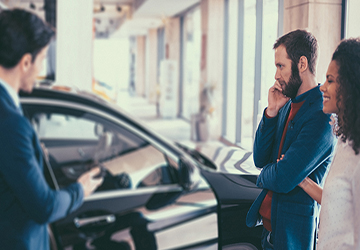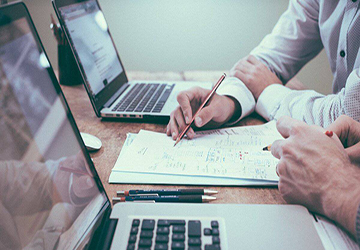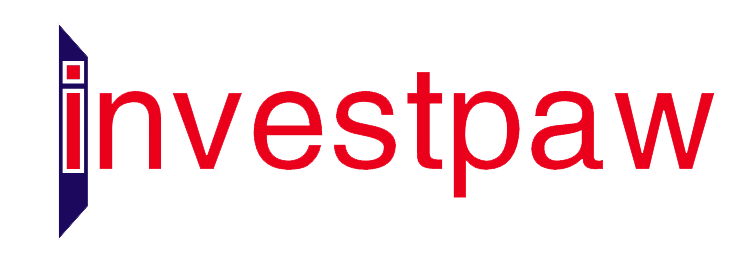The car-buying process is a big decision, with pros and cons to consider when purchasing or leasing your next vehicle. Weighing the advantages of each option can help you make the right choice for yourself and save you money in the long run.
We'll explore the differences between buying and leasing so you can learn more about which option is best for your lifestyle and budget.
Rent your next car
Leasing your next car means renting it for seven years -- usually two to four years. You make monthly payments during this time, and the rental company retains car ownership. Leases typically require a down payment, such as a down payment, the first month's rent and other expenses.
You can buy the car outright or return it for another vehicle at the end of the lease. The benefits of leasing include lower monthly payments, access to a more advanced vehicle, and no long-term commitments, as leases typically only last two to four years.

Buy next car
On the other hand, buying your next car means owning it and keeping it for as long as you want. This option typically requires a larger upfront payment than leasing but offers greater flexibility and control over customization and ownership. Often, buying your next vehicle also gives you more negotiating power over the total cost of the car since financing is done through a lender rather than a dealer.
Buy or lease at Car Advantages
Buying or leasing your next vehicle will determine which option is best for your lifestyle and budget. To make an informed decision, here are some advantages of each option:
- Buying Advantages: You own the car, build the asset over time, have more negotiating power over cost, and have no mileage or term limits.
- Leasing Advantages: Low monthly payments, access to more advanced vehicles, and no long-term commitments, as leases typically only last two to four years.
Now that you understand the advantages of buying and leasing a car, you can decide which option is best for you and your budget. Be sure to research thoroughly to make the right choice for your needs.
Disadvantages of buying or leasing a car
Besides the advantages, there are disadvantages to buying or leasing a car.
lPurchase: You have to pay a higher upfront cost, you're stuck in the car for longer, and predicting future repair costs can be difficult.
l Leasing: You don't build an asset over time, and your ability to customize your vehicle may be limited. Leases often require a down payment and other expenses that can add up quickly.
When deciding whether to buy or lease a car, it's essential to consider all of these factors to make an informed decision that best suits your lifestyle and budget. Do your research thoroughly to find options that are right for you.
Should You Buy or Lease Your Next Car - Financing Tips to Consider
Making an informed decision starts with understanding all the financing options available when buying or leasing your next vehicle. When shopping for the right financing, keep the following tips in mind:
Shop around and compare rates from multiple lenders – this can help you find a better deal.
lConsider your credit score when looking at interest rates – a higher score may get you better loan terms and a lower interest rate.
lConsider any additional fees or charges associated with the loan, including origination, processing, and application fees.
lRead the duration of your lease carefully and be aware of any restrictions or penalties that may apply when returning the car at the end of the lease.
lBe aware of any offers or incentives the dealer may offer to entice you to buy.
lCalculate the total cost of ownership when comparing different cars or financing options. This will help you determine the most cost-effective option in the long run.
lAsk a financial advisor for advice and guidance – this helps ensure you make informed and informed choices.

Your needs and choose the right car type for you
Knowing your needs and budget is essential when choosing the right car. Research the vehicles available, such as sedans, SUVs, vans, or trucks. When deciding, consider factors such as price and running costs (fuel economy), safety features, size, and features.
Another factor to consider is whether you want a new or used car. While more recent cars have the latest features and technology, they often cost more than used cars. On the other hand, buying a used car is a great way to save money while still getting the features and performance you want.
If you're buying a new car and can afford it, consider buying from a Certified Pre-Owned (CPO) program. These vehicles offer the benefits of both new and used cars -- guaranteed quality, warranty coverage, and significant savings over buying brand new.
Is it better to rent a car or buy a car?
The choice between leasing or buying a car is ultimately up to you and your needs. Before deciding, it's essential to consider each option's pros and cons, such as upfront costs, monthly payments, long-term savings, and future repairs. You should also consider any additional fees or restrictions applicable when leasing, such as mileage restrictions and security deposits. Buying a car also gives you more freedom in customization but usually comes with a higher upfront cost and monthly payments.
The best way to choose is to research and compare different financing options. Shopping around can help you find the best deal and determine which option will save you money in the long run. When deciding, you should also consult a financial advisor for further advice and guidance. By weighing all of these factors, you can make an informed choice about whether leasing or buying your next vehicle is suitable.
FAQ
What can you comfortably afford each month?
It's ultimately a personal decision, and what you can comfortably afford depends on your income, spending, and financial goals. When comparing different cars or financing options, it's essential to consider the total cost of ownership -- this includes monthly payments, taxes, insurance costs, and more. Your budget should also factor in any additional costs associated with the loan, such as origination fees or prepayment penalties.
How long do you plan to drive?
How long you plan to drive your car is critical in buying or leasing. It's a better buy if you plan to keep the car for at least three years. The longer you own your vehicle, the more it's worth when you trade it in. If you plan on owning the car for a shorter period, leasing may be the better option, as it allows you to get a brand-new car every few years.
Do I need a down payment?
Whether you need to make a down payment depends on your loan or financing option. Many traditional loans may require a down payment, while some lease options may not. You should also check for any other upfront costs associated with the loan, such as registration fees or taxes.
In conclusion
Deciding to buy or lease your next vehicle is a big decision, and evaluating the pros and cons of both options can be challenging. After weighing each option, ask yourself what makes the most financial sense. Also, when making this big decision, it's essential to consider which option will make you happiest in the long run. While the monthly lease cost tends to be lower, the monthly cost increases over time -- and at the end of the day, you're spending more than buying a car.





